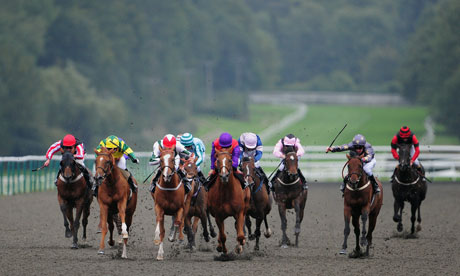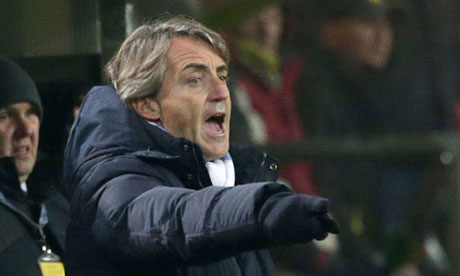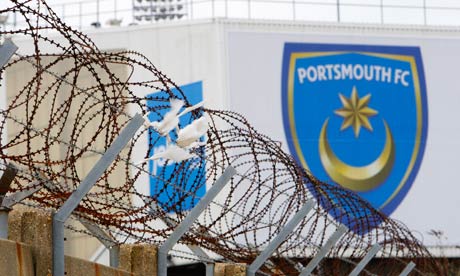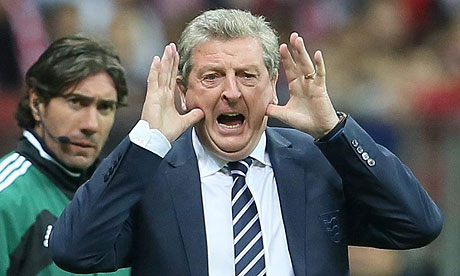
They race on Wednesday on the all-weather at Lingfield, above, where Yarroom is the best bet in the opening race. Photograph: Mike Hewitt/Getty Images
11.45am Dettori gets six month ban for positive drugs test
Tony Paley: Frankie Dettori has been suspended from riding for six months after being found guilty of taking a prohibited substance, his legal representative Christopher Stewart-Moore said on Wednesday morning.
The three-times British champion jockey, 41, tested positive for what is believed to be cocaine following a routine examination at Longchamp on September 16. Dettori's suspension runs from November 20 to May 19 and is likely to be reciprocated by racing jurisdictions worldwide, including by the British Horseracing Authority.
He will be back in time to ride in the Epsom Derby. You can read more details throughout the day in our story
here.
9.30am Catterick gets go-ahead but more weather worries for racing
Tony Paley: Wednesday's meeting at Catterick goes ahead following an early-morning course inspection. With temperatures having only dipped to minus 1C, allied to a dry night, the jumps fixture was promptly given the go-ahead at 7.30am.
Catterick clerk of the course Fiona Needham said: "It's very good news. We had no snow and overnight temperatures got down to minus 1C, which wasn't a problem." The going is soft, good to soft in places.
Meanwhile, Thursday's meetings at Wincanton and Leicester must pass 8am precautionary inspections on raceday morning. Although the Somerset circuit is raceable, course officials are taking no chances. Overnight temperatures are set to drop to minus 2C, but the inspection has been called in case the frost is sharper than has been forecast.
Wincanton Clerk of the course Barry Johnson said: "I'm very confident we'll be fine - we'll be OK with minus 2C - but some forecasts are predicting minus 4C. There's no frost in the ground now, but the ground is quite wet. It's very much a precautionary inspection."
Frost is the main issue at Leicester, with temperatures set to drop to as low as minus 5C. A maximum daytime temperature of 2C on Thursday has also been forecast.
Clerk of the course Jimmy Stevenson said on Wednesday morning: "There's no frost whatsoever this morning - we are perfectly raceable - but there is quite a severe frost forecast tonight. If we think we have a chance at 8am, we'll probably call another inspection later in the morning and then, possibly, look again. We've got to be patient."
Wednesday's best bets, by Tony Paley
It was snowing, OK it was sleeting, this morning in north London, but with the weather forecast suggesting freezing temperatures overnight, more flurries of snow and heavy rain on the way by the end of the week it's probably best to grab that all-weather form book and take a peek at life on the sand.
Lingfield is a good place to start as the course is starting an extended run of eight days racing caused by the temporary closure of Wolverhampton and flooding at Southwell which is likely to set to keep that track out of action until the new year.
The first race there on Wednesday features the best bet of the day in the shape of Yarroom (12.00) from Roger Varian's yard. The Cape Cross colt impressed when getting off the mark at Wolverhampton last time, easing clear to win by seven lengths and it will be disappointing if he can't follow up off top weight on his handicap debut.
Hometown Glory (1.30), who should be suited by stepping up in trip to a mile for trainer Brian Meehan, is another to consider on the Polytrack card. He has a good record on the surface and everything looks in place for him to give a good account on Wednesday afternoon.
Catterick getting the go-ahead on Wednesday is a bonus as Rear Admiral (12.20) looks well worth a very close look in the opener at the Yorkshire track. He has been in excellent form in the point-to-point field since his last run over hurdles with four easy wins from five starts. The selection hails from the shrewd Mick Easterby camp and they could well have a very well handicapped runner on their hands.
Tipping competition, day two
Perhaps the Anglo French race at Folkestone wasn't the friendliest race we could have chosen yesterday. In any event, no one had the winner, Fitandproperjob (9-1). Yossarian24 had the other two, Rouge Et Blanc (100-30) and Angel Cake (6-1), giving him the early lead.
This week's prize is a copy of the Racing Post's annual, now in its second year and a really good-quality offering that any fan of the sport will enjoy, with masses of lovely pics and contributions from Tony McCoy, Richard Hughes and Willie Mullins. If you don't win, you can buy a copy
here.
To kick things off, we'd like your tips, please, for these races: 2.40 Hereford, 2.50 Catterick, 5.50 Kempton.
You'll see that we have a new presentation format for comments in the sports section of the website, below. Apparently, a bug means that you can't display more than 50 comments on the same page, but they're working to fix this so that you will, once again, be able to display all comments at once.
As ever, our champion will be the tipster who returns the best profit to notional level stakes of £1 at starting price on our nominated races, of which there will be three each day up until Friday. Non-runners count as losers. If you have not joined in so far this week, you are welcome to do so today but you will start on -3.
In the event of a tie at the end of the week, the winner will be the tipster who, from among those tied on the highest score, posted their tips earliest on the final day.
For terms and conditions click
here.






